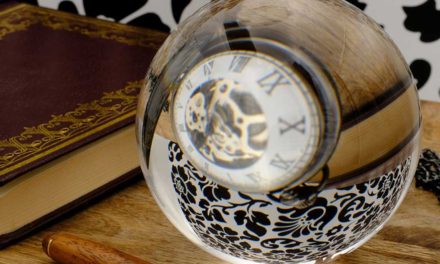Is there an ethics of writing story? Yes, the word is plural; “ethic” is singular. A story can be a description of events. They can be true or imagined. The plural form is stories. Whew, that’s out of the way.
Is this blog a story? If so is it true, imagined, plausible, made up, actual, real, or a damnable lie in truth’s clothes? Let’s say it’s a true story calling for imagination, a sense of dry humor, and a word or two of caution. The ethics of story is truth. Stories can be told as fiction and obviously false. Its ethics are the difference between accepted truth and assumed falsity. We make stories true or false depending on how we read them.
I’ve blogged for the last three years about myriad intricacies, rope-a-dope tests, measurements, and mumble-fumbles laced with the word “truth.”[1] But this little foray into fabricated candor is about story, which itself can be impossible to assess, not to mention deny. Story is a word fraught. Fraught with truth, lies, deception and actuality. It exists to be tested, missed, lost, found, and ultimately believed or dammed. To complicate story, writers, their readers, and readers who read without caring about truth, see story as an account of imaginary or real people told to establish truth. Or they see it as yet another lie told for the sheer entertainment it might be, especially when it’s an adventure story.
We’ve had presidents who could not tell a lie and at least one who could not tell the truth. We’ve had storytellers who weaved in and out of the warp called truth only to find the weft called lie. One side of their story is vertical, stretched taut like truth, while the other is horizontal lying and undulating in and out of the truth’s mouth. Few politicians are known truth-tellers but Mahatma Gandhi and Abraham Lincoln stand as leaders whose actions squared with their words. Bill Clinton and Richard Nixon were in the other camp. Trump is the ultimate lie.
Fiction is full of lies. Fiction writers intentionally blur lines, make up facts, deny truth, and lie for fun and profit. Some nonfiction writers are unreliable narrators who use lies as plot engines. They dissemble to propel story. They invent layers of awareness that rub against each other like tectonic plates.[2] They appeal to readers who share the writer’s prejudices, feel politically aligned, and don’t care about naked truth. Properly dressed lies are just fine.
Nonfiction is supposed to be true. The label stands for factually true events. Histories, biographies, journalism, and essays are nonfiction. But it only takes a few utterances to diminish truth. Mere smatterings can strike the non and don the fiction. When that happens it causes a supposedly true story to lose credibility. Arguably the best example is author James Frey, author of “A Million Little Pieces.”Oprah kicked him out of her Book Club in 2006 when the world learned he had fabricated most of his memoir. [3] Truman Capote’s In Cold Blood is widely regarded as one of the best works of nonfiction precisely because it blurs the line between fiction and nonfiction. He called it a nonfiction novel. Talk about a contradiction in terms. Capote’s descriptions and detailing of events were rich and evocative, which led to questions about his veracity.[4] Literature has its own heroes and goats when it comes to silver spoons and forked tounges.
The word story has evolved. At first it meant a connected account or narration of something that actually happened. It came from Old French estorie, meaning chronicle or history. For a century or two it meant a recital of true events. Over time it became a narrative of fictitious events meant to entertain. It was also a euphemism for a lie, as in, did you hear the story he told to cover up what he did? Today it’s commonly used as the story of my life, a sad truth. Can wishful thinking be true?
In today’s digital world, truth has its own Wikipedia page. Therein lies the intersection of truth and story. “Truth is the property of being in accord with fact or reality. In everyday language, truth is typically ascribed to things that aim to represent reality or otherwise correspond to it, such as beliefs, propositions, and declarative sentences. Truth is usually held to be the opposite of falsehood. The concept of truth is discussed and debated in various contexts, including philosophy, art, theology, and science. Most human activities depend upon the concept, where its nature as a concept is assumed rather than being a subject of discussion; these include most of the sciences, law, journalism, and everyday life. Some philosophers view the concept of truth as basic, and unable to be explained in any terms that are more easily understood than the concept of truth itself. Most commonly, truth is viewed as the correspondence of language or thought to a mind-independent world. This is called the correspondence theory of truth.”[5]
Whew. Defining story by differentiating truth from falsity is hard work. Writers over the ages have tried. Pablo Picasso said, “We all know that art is not truth. Art is a lie that makes us realize truth, at least the truth that is given us to understand. Jean Cocteau said, “I am a lie that always tells the truth.” Jean-Luc Godard said, “Truth in all things, even partly, in error.” Joyce Carol Oates said, “The experience is there, and the reality is there, but how to get at it? Everything I type turns into a lie simply because it is not the truth.”
All other artists and writer aside for the moment, Oscar Wilde connected writing stories and telling the truth in motivational terms. He said, “If one tells the truth, one is sure, sooner or later, to be found out.”
[1] What Are the Ethics of Storytelling?—September 9, 2018
What Does Truth Isn’t Truth Mean?—August 26, 2018
Is Memoir Writing Truthful Or Just Therapy?—November 8, 2019
When We Tell Stories Are We Telling Lives?—November 15, 2018
Is Writing What You Remember As Truth Ethical Or Must You Fact Check Your Memory? February 12, 2019
The Ethics of Writing Lies—September 9, 2019
The Ethics of Writing About True Events—July 7, 2020
The Ethics of Writing Fake—October 8, 2020
The Ethics of Writing True Crime—December 2, 2020
The Ethics of Writing The Liar’s Paradox—February 25, 2021
[2] https://www.theguardian.com/childrens-books-site/2015/jan/29/top-10-liars-in-literature-nick-lake
[3] https://bookriot.com/difference-between-fiction-and-nonfiction/
[4] https://www.cliffsnotes.com/literature/i/in-cold-blood/book-summary
[5] https://en.wikipedia.org/wiki/Truth

I am an author and a part-time lawyer with a focus on ethics and professional discipline. I teach creative writing and ethics to law students at Arizona State University. Read my bio.
If you have an important story you want told, you can commission me to write it for you. Learn how.






 I am an author and a part-time lawyer with a focus on ethics and professional discipline. I teach creative writing and ethics to law students at Arizona State University.
I am an author and a part-time lawyer with a focus on ethics and professional discipline. I teach creative writing and ethics to law students at Arizona State University.  My latest novel is Hide & Be.
My latest novel is Hide & Be.  If you have an important story you want told, you can commission me to write it for you.
If you have an important story you want told, you can commission me to write it for you.